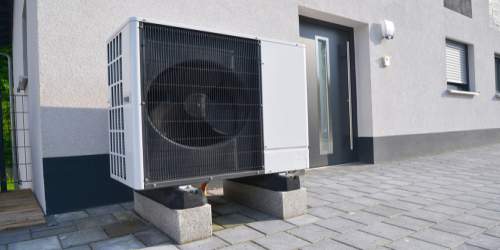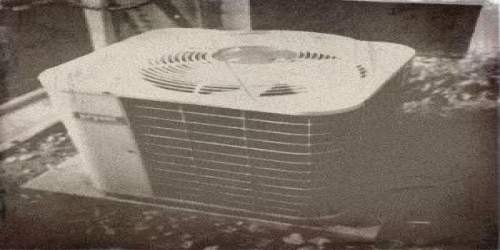Read Time : 5 Minutes
Heat Pump Manufacturers, Installers and Accreditation
Accreditation associated with Heat Pumps
The main UK quality assurance scheme for low-carbon and renewable energy technologies is the DECC-supported Microgeneration Certification Scheme (MCS). It is through MCS that heat pump systems must be registered in order to be eligible for the RHPP grant (closed in 2014) and RHI payments (closed to new applications on 31st March 2022 and replaced with the Boiler Upgrade Scheme (BUS)). Your installer should help you with this process, and before installation should advise you of the proposed installation’s eligibility for financial incentives.
It is therefore essential to ensure that your installer/supplier is accredited by an MCS-appointed certification body. MCS-accredited companies must conform to rigorous quality and safety standards and meet Office of Fair Trading (OFT) requirements.
It is necessary to ensure that the heat pump system that you plan to install is MCS-certified, which means that it has been subjected to testing and rigorous quality controls.
A database of MCS-certified products is available on their website:
http://www.microgenerationcertification.org/consumers/product-search
MCS also have an industry Code of Practice and can investigate complaints on behalf of consumers.
For more information, visit the MCS website:
http://www.microgenerationcertification.org/
Reputable renewable energy installation companies should also be a member of Renewable Energy Assurance Ltd (REAL). Membership of REAL indicates that a company has signed up to its OFT-approved Consumer Code, which ensures high service standards before, during and after the installation of renewable energy technology. Any sub-contractors engaged by installation companies must also comply with the REAL codes of practice.
Details of the code of practice and a list of REAL scheme member companies can be found on their website:
http://www.realassurance.org.uk/
There are also industry bodies, such as the Ground Source Heat Pump Association, which encourages high installation standards and promotes the efficient and sustainable use of heat pump technology. See their website at:
COMPARE PRICES FROM LOCAL INSTALLERS
Compare prices from local companies fast & free
Enter your postcode to compare quotes from leading professionals. We promise to keep your information Safe & Secure. Privacy Policy
Heat Pump Installers and Installation information
Information to consider before contacting an installer
What type of heat extraction principle should I use?
Read our pages on the types of Heat Pump to get a better idea of which type of technology is best suited to you.
The 'Renewable Heat Premium Payment' ended soon after the RHI (Renewable Heat Incentive) scheme was introduced in 2014. How does the RHI scheme affect the overall cost of your installation?
The RHI Scheme has now closed to new applications and been replaced with the Boiler Upgrade Scheme (BUS)
The RHI scheme provides financial support to people who use certain renewable technologies to heat their homes. The payments which are government funded help to offset the cost of installing and running your renewable heating system. You receive a quarterly tariff payment for every kilowatt hour (kWh) of renewable heat you produce for 7 years. The amount you’ll be paid per kWh of heat depends on when you apply to receive RHI, and your home's Energy Performance Certificate (EPC).
How do I know what size heat pump to get?
With the right system you should never find yourself without heat or hot water, even in the coldest of winters, ask your installer about the output of your system and its proposed efficiency, an oversized heat pump will also cost you more than necessary to run so bear this in mind.
How much should I pay for a heat pump?
Air source heat pumps generally range from £8000 to £14000 depending on the size of the system you need. You should expect to pay about £500 per kWh. Running costs for an average home are around £400 to £500 per year depending on how much electricity the system requires.
How do I compare the performance promised by competing heat pumps?
Efficiency (COP = Coefficient of Performance) is a term used to describe the heat pumps capacity to produce heat in relation to the energy required to extract it. A heat pump with an efficiency rating of COP 3 will be able to produce three times more heat energy than the electrical energy it consumes. Efficiency isn’t always a constant though; it varies with the outdoor temperature. The colder it is outside the less efficient the unit will be.
Can my heat pump work alongside my solar panels or solar thermal system?
Ask your installer whether it would be worthwhile to feed electricity from your solar panels straight to your heat pump. This might be useful if your panels are off grid. You may also be able to use hot water from solar thermal panels to top up your radiators. This practice is uncommon though because when your solar panels are at low output in the winter, your heat pump will most likely be at high output so one probably wouldn’t be able to power the other.
Do I need a remote control for my heat pump?
Heat Pump remote control systems help you set your heat pump’s output and energy usage. You can even get apps that allow you to control your heat pump system from your mobile phone or laptop.
Do I need my heat pump to provide passive cooling in the summer?
Nearly all heat pumps except air source heat pumps can be used to cool your environment in hot summers by passing cool liquid through the loop. If this is something that may be of benefit for you, make sure to check before you buy.
Is my property well insulated?
Your heat pump will heat your property a lot easier if your property is properly insulated. We recommend that if you are thinking of having a heat pump system installed, you first insulate to the highest possible standard. This will help keep your running costs low.
Are my radiators up to the task?
Under-floor heating is preferred but radiators can work just as well. However, you may need larger radiators to be able to heat your property sufficiently.
What is my current home health?
A good heat pump installer will help determine if your home or building is prone to indoor air pollution problems, which may be due to bio-organic resins or vapours, poor air turnover or high humidity. If allergies are a problem, a quality contractor can service your heating and air conditioning system and recommend system accessories that may prevent conditions that adversely affect health and comfort.
Do I have any environmental concerns?
Your installer should also be concerned about protecting the environment. Chlorofluorocarbons (CFC’s) and hydro-chlorofluorocarbons (HCFC’s) used as air conditioning and heat pump refrigerant have been linked to the destruction of the earth’s ozone layer. A quality contractor won’t release the refrigerant into the atmosphere and is trained and certified in the proper techniques for recovering, recycling, reclaiming, and disposing of used refrigerants.
Is my property suitable for a heat pump?
Some buildings are less suited to heat pump systems than others. Your best bet is to ask a range of installers for a quote and for information and advice on the costs of running and installing the proposed system.
What is my chosen installers credentials?
Check the company you are looking to use is MCS certified and ask about any other trade associations or accreditations they may have. You can always ask to check their quoted credentials and ask about the criteria of any credentials to check they are relevant.
What warranty does my heat pump come with?
Ask about warranties and cover, and over what time periods. Plus, any after installation.
Is my heat pump installation project managed?
Ask if the company will project manage the whole job and coordinate the drilling / trenching. This will help deliver you a properly matched and balanced system that will operate at a higher efficiency.
Is my heat pump compatible with existing and future systems?
Ask if the company will liaise directly with the installers of any new heating system such as under floor heating. It is critically important that these two systems are designed with each other in mind.
Ok all is good, what do I do when I am ready?
Choosing an installer or a maintenance team for your heat pump system can seem a bit daunting. We provide a vast list of UK based installers that is coupled with a ratings and review system to help you choose. The best option is to look for a well-established company that provides a prompt, courteous and reliable service. If you are getting a company to come out and talk to you about a proposed system or to check out a problem with a current system, ask them if there is a service charge, just in case you decide you don’t want to use them. Beware of any heavy-handed selling techniques, such as pressure to sign a contract on the day or persuading you not to get any further quotes. All MCS-certified installers agree to a code of conduct that bans high-pressure selling techniques this is called the Renewable Energy Consumer Code. This feature allows you to find a local or national Heat Pump installer. You can ask them for information or to visit you, have a chat and give a free, no obligation quotation. Search our database to find installers of Heat Pumps that service your area using the box below.
Find a local installer
Welcome to the biggest directory of UK renewable energy companies





 How does a Heat Pump Work
How does a Heat Pump Work








